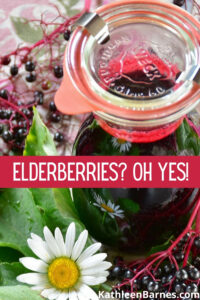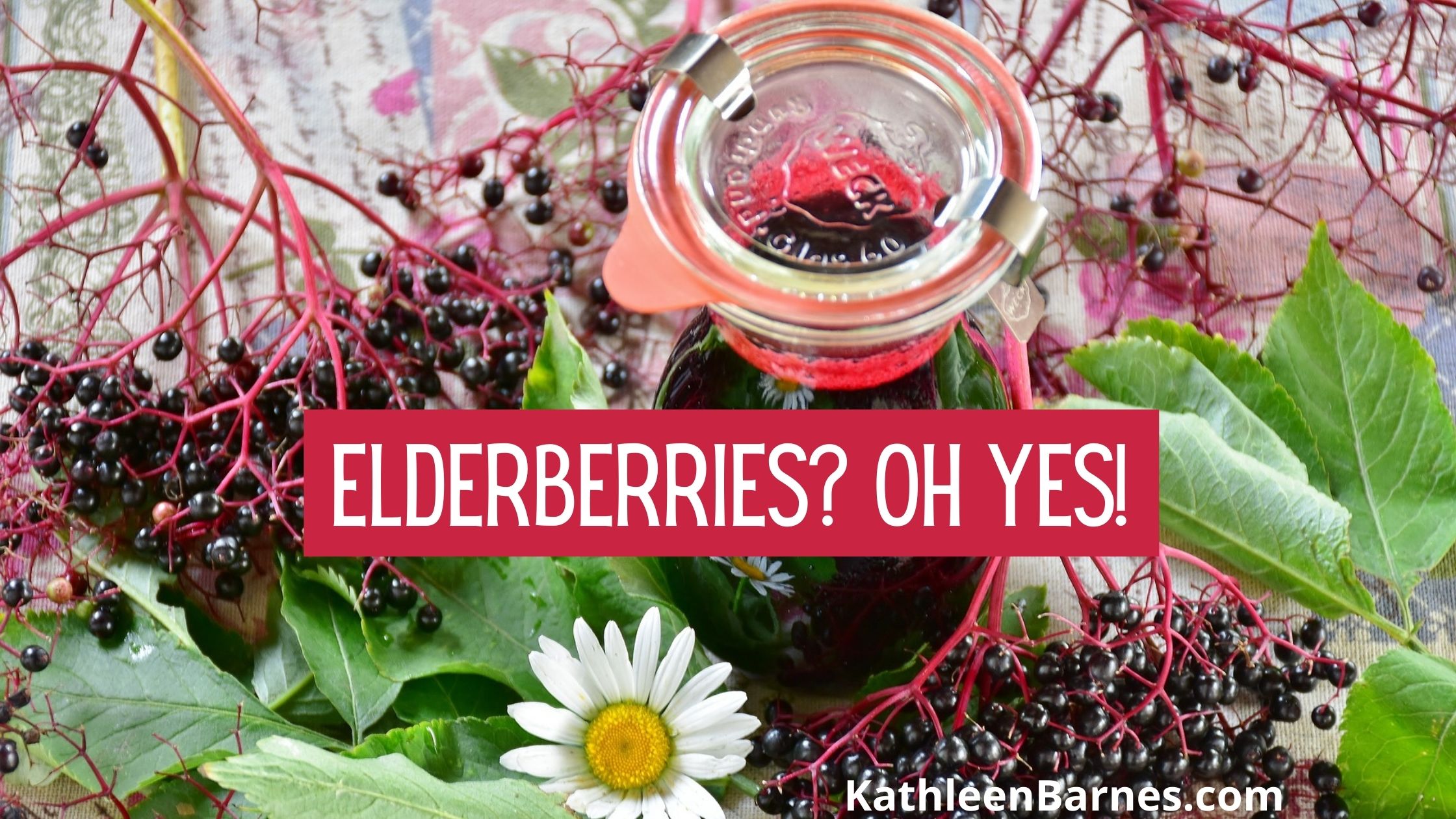 This has been a somewhat difficult gardening year. Thanks to a neighbor who likes to kill everything in sight, there are no coyotes or snakes to control the squirrel and rabbit population, so we lost all of our tomatoes and most of everything else. Sigh.
This has been a somewhat difficult gardening year. Thanks to a neighbor who likes to kill everything in sight, there are no coyotes or snakes to control the squirrel and rabbit population, so we lost all of our tomatoes and most of everything else. Sigh.
The good news is that we have a bumper crop of elderberries. They probably survived the squirrel onslaught because our 15-foot bush is far away from anything they can climb. That makes harvesting a challenge, but it’s worth it.
How to tincture
After a little trial and error, I decided that tincturing was the simplest way to go with the juicy purple beauties.
All that’s needed is a quick wash and some time spent tugging the tiny ripe berries from their stems. It’s a bit tedious, but I do it while I’m watching a movie or something.
Plucked berries can go straight into a sterilized glass, covered with 85 proof vodka and lid securely attached. I label them carefully and keep them in a dark, cool cupboard for at least six weeks before straining out the berries, throwing them away and storing them in a dark, cool place. The gorgeous purple liquid will last for years. For those who do not want alcohol, anything can be tinctured in vinegar, but it will only last a year or so.
Why go to all that trouble?
First, it’s not really trouble and second, elderberries are probably the best cold and flu defense you can find. They boost immune function and are excellent antioxidants because of their high levels of catechins, a particularly powerful type of flavonoid. Those flavonoids and other proteins destroy the ability of cold and flu viruses to infect a cell.
One important Israeli study showed that people with verified cases of flu had milder symptoms and their recovery time cut in half when they took elderberry tincture. Lab studies show elderberry may be effective against the swine flu virus. In addition to its anti-viral properties, elderberry has been used traditionally for its antioxidant activity, to lower cholesterol, to improve vision, to boost the immune system, to improve heart health.
Why tincturing?
The easy answer is that tincturing is probably the easiest method of processing elderberries and the longest keeping. I’m always looking for ways to preserve medicines and foods that require little or no electricity to process or store.
I’m well aware that many people make therapeutic elderberry wine. That’s definitely a project for next year!
Many people also make elderberry syrup. I’m the first to say it is delicious, but it’s loaded with sugar. I know, most people make elderberry syrup with honey, but let’s face it, honey is still sugar. I rule out making elderberry syrup because my husband is a diabetic and I definitely don’t need more sugar, either.
I did make one batch of elderberry juice, simply simmered in water, strained and frozen in ice cube trays. This might be a good alternative for children, since you probably wouldn’t want to give them a lot of vodka-based tincture, although I don’t think that is necessarily a problem when they are actually sick. However, most parents wouldn’t want to give an alcohol-based product daily as a preventive.
An elderberry ice cube a day would be an excellent preventive for most everyone.
As a preventive, a teaspoon of elderberry juice or tincture a day should suffice to prevent winter ills.
Here’s one caution: As with any medicinal, be absolutely sure you know what you’re getting. You want ONLY the dark purple berries of the Sambuca nigra. Other varieties may be poisonous. I’ve planted that variety on purpose and I know you can order fresh berries and dried berries online. (Dried berries work just fine for tincture, too.) Please don’t pick them along roadsides because you can’t be absolutely sure you are getting the safe variety and they may be contaminated with petrochemical residues from cars.
Other varieties may be poisonous. I’ve planted that variety on purpose and I know you can order fresh berries and dried berries online. (Dried berries work just fine for tincture, too.) Please don’t pick them along roadsides because you can’t be absolutely sure you are getting the safe variety and they may be contaminated with petrochemical residues from cars.







